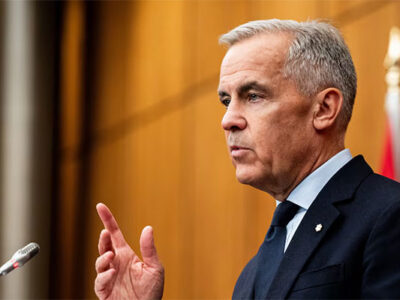SEOUL, South Korea — Hanwha Q CELLS Turkey, the Turkish branch of globally leading photovoltaics provider Hanwha Q CELLS Co., Ltd. (“Hanwha Q CELLS”) (NASDAQ: HQCL), has finished construction and grid connection of an 8.3 MW solar power plant in Burdur, Turkey.
The system is the first part of a project totaling 18.3 megawatts (“MW”). The construction of the second part, comprising 10 MW, is expected to start in 2016. Moreover, the company has closed a USD 20.15 Million project financing for the complete 18.3 MW together with Yapi Kredi Bank.
In its largest solar project in Turkey so far, Hanwha Q CELLS Turkey has been responsible for module supply, engineering, procurement, construction (EPC), Operations & Maintenance (O&M) and also is a shareholder of 50% of the power plant, with their partner Zen Enerji A.S. holding the other 50%.
Thus the globally active PV company again underlines its strong position as an internationally experienced full-service-provider in power plant solutions with a strong financial background.
ONE OF THE LARGEST SOLAR POWER PLANTS IN TURKEY
Hanwha Q CELLS Turkey started construction of the park in Burdur, in south-west Turkey in August 2015 and reached grid connection only two-and-a-half months later, in November 2015. The power plant is comprised of 31,878 polycrystalline solar modules of the type HSL60S and covers an area of around 128,600 m2. With its 8.3 MW, the power plant is one of the largest in the country so far. It is expected to produce around 13.467 megawatt hours (“MWh”) of clean energy per year, which is to be fed into the grid; enough to power around 2,700 average households in Turkey. Thus the park will save around 2,700 kg of carbon emission in every year of its operation.
PROJECT FINANCING: THE FIRST OF ITS KIND
Project financing for the Burdur solar power plant has been provided by the Yapi Kredi Bank. With a runtime of 12 years and totaling around USD 20.15 Million, it is the first such financing in Turkey. The attractive return on investment (“ROI”) are mainly driven by the Feed-in-Tariff in Turkey, which ensures 13.3 cent / kilowatt hour (“KWh”) over a period of 10 years. Other factors that convinced Yapi Kredi Bank to engage in the financing were Hanwha Q CELLS’s experience in the development, construction and management of large scale power plants as well as their strong financial background. Ms. Tunaboylu, Vice President at Yapi Kredi Bank said: “It was an easy decision for us to partner with Hanwha Q CELLS Turkey in financing the Burdur project. Combining our know-how in financing with their expertise in solar power plant solutions from start to finish is a win-win situation that pays-off for both of us.”
Mr. Jun Sung Lee, Managing Director of Hanwha Q CELLS Turkey, said: “We are very proud to put into operation our first and at the same time one of the largest solar power plants in Turkey. Moreover, closing the project financing together with our renowned partner Yapi Kredi Bank is a strong sign for both, the great potential of the PV market in Turkey as well as the capability of Hanwha Q CELLS to leverage it as a full service provider. Against the background of our strong EPC and Project Development capacity, Hanwha Q CELLS Turkey is looking forward to realize further projects in the country.”
About Hanwha Q CELLS
In February 2015 Hanwha Q CELLS Co., Ltd. (NASDAQ: HQCL) emerged as a new global solar power leader from combining two of the world’s most recognized photovoltaic manufacturers, Hanwha SolarOne and Hanwha Q CELLS. The combined company is listed on NASDAQ under the trading symbol of HQCL. It is headquartered in Seoul, South Korea, (Global Executive Headquarters) and Thalheim, Germany (Technology & Innovation Headquarters) and is the world’s largest solar cell manufacturer as wells as one of the largest photovoltaic module manufacturers. Due to its diverse international production setup including facilities in China, Malaysia and South Korea, Hanwha Q CELLS is in the unique position to flexibly address market needs globally, even including certain key markets with import tariffs, such as the USA and the European Union. Based on its well respected “Engineered in Germany” technology, innovation and quality, Hanwha Q CELLS offers the entire range of outstanding photovoltaic products, applications and solutions, from modules to kits to systems to large scale solar power plants. The combined company is also engaged in downstream development and EPC business. Through its growing global business network spanning Europe, North America, Asia, South America, Africa and the Middle East the company provides excellent services and long-term partnership to its customers in the utility, commercial, government and residential markets. Hanwha Q CELLS is a flagship company of Hanwha Group, a Top-Ten business enterprise in South Korea. For more information, visit: http://investors.hanwha-qcells.com/.
Yapi Kredi Bank
Yapi Kredi, the fourth largest private bank in Turkey with TL 247.8 billion of assets (USD 81.4 billion), has been dedicated to deliver since its establishment in 1944. One of the 10 most valuable brands in Turkey, Yapi Kredi is a strong franchise with inherent culture of customer-centric core banking focus, innovative banking technologies and sustainable value generation. The Bank ranks 4th in total cash loans with 10.5% market share and 5th in total deposits with 10.5% market share.
The Bank has clear and unique strategic guidelines aimed at achieving profitable and sustainable growth together with increasing customer satisfaction. Yapi Kredi’s strategy is based on healthy and consistent growth focused on core banking activities; strong and sustainable profitability, disciplined cost control and efficiency gains as well as superior and long-lasting customer satisfaction.
Yapi Kredi has a strong shareholding structure which ensures sustainable and profitable growth. The Bank’s main shareholder is Koc Financial Services (KFS) with 81.8% ownership. KFS is a 50%-50% joint venture between Koc Group and UniCredit Group. The remaining 18.2% is publicly traded on Borsa Istanbul. In addition, the Global Depository Receipts that represent the Bank’s shares are quoted on the London Stock Exchange.













Comments